#Maryam Mirzakhani
Explore tagged Tumblr posts
Text
Maryam Mirzakhani, first woman to win Fields medal in mathematics

Maryam Mirzakhani was one of the greatest mathematicians of her generation. She made monumental contributions to the study of the dynamics and geometry of mathematical objects called Riemann surfaces. Just as impressive as her theorems was her ability to push a field in a new direction by always providing a fresh point of view. Her raw talent was rare, even among the most celebrated mathematicians, and she was known for having a taste for difficult problems. -Kasra Rafi, Nature journal
For many Iranian women in STEM, she is a light and a role model. She's the deity we all look up to every time we get disheartened. But for the regime she was just a woman. Veil first, being treated like a human being next. To the point that when she passed away, due to breast cancer, IRIB and many regime newspapers who covered her passing news, photoshopped her photo to put obligatory hijab on her head. They tried to name her achievements as their own even though one of the main reasons she left Iran was because of how lowly intelligence was treated by this government.
Today was her birth date. RIP to the woman who is the symbol of mathematics in Iran.
#iran#politics#human rights#feminism#maryam mirzakhani#middle eastern women#women in stem#mathematics#mathematician#women#women life freedom#female scientists#women in science#nature journal#iranian women#iranian#middle east
405 notes
·
View notes
Text
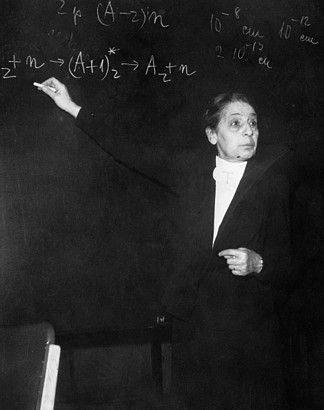

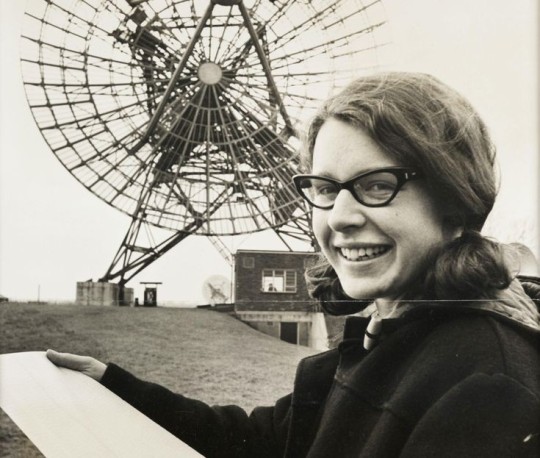
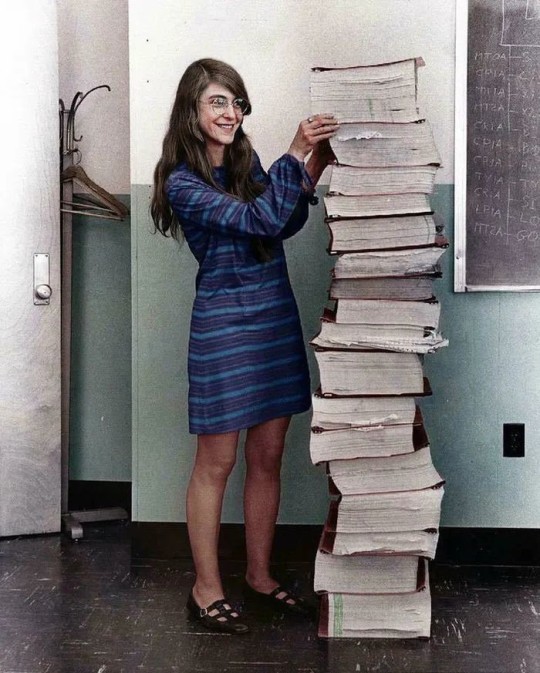



I'm getting ready for going to uni so I'm gonna post a lot about it to keep myself motivated. These are some of my favourite people in math and physics. Also a reminder that science is not for an specific group. We all belong to it. Don't be afraid of choosing a male dominated field. Have a good day everybody.
#mathematics#physics#uni#science#maryam mirzakhani#Sabrina pasterski#richard feynman#margaret hamilton#lisa randall#chen yang
112 notes
·
View notes
Quote
I don’t think that everyone should become a mathematician, but I do believe that many students don’t give mathematics a real chance.
Maryam Mirzakhani
#Maryam Mirzakhani#quotelr#Mathematics# Thinking# Chance# believer# doing# everyone# many# real# student#quotes#literature#life quotes#author quotes#prose#lit#spilled ink#writers on tumblr#writing inspiration#poets on tumblr
147 notes
·
View notes
Text
My brief, vague, scattered review of Almost Nowhere
Welp, I finished it, all 1079 pages of it. (Really 1077 pages with the first and last essentially acting as a front and back cover.) As the book is of an unwieldy length and I don't have much time or brainpower at the moment, this post is going to comment on just some aspects of it. Also, as I never managed to gain anything close to mastery of exactly how the plot worked, most of this is going to be vague and avoid discussions of the plot events, character decisions or traits, or anything that specific really. I think a couple of people wrote spoilery reviews; I don't feel very capable of this (nor of giving a very good description of the novel to someone else at a level of concreteness that they would reasonable expect.)
So, I would say no concrete spoilers to follow, and only a couple of quite vague ones.
I noted this in other posts written while I was in the midst of the novel, but I have to say it again because it's one of the most pertinent parts of my experience reading this: Almost Nowhere is the most cerebral fiction-writing I've ever read (with the possible exception of the few chapters of Harry Potter and the Methods of Rationality that I've read), on just about every level including narrative style, plot mechanics, and the ideas and themes explored -- there are even occasional fictional-scientific lectures inserted from time to time (which I found quite enjoyable actually)! More generally, the writing just screams of sheer IQ points both on the part of the author and on the part of the expected audience, in the use of a dazzling vocabulary as much as the elaborate plot and fictional-scientific situations one has to keep track of the characters being in. (It's interesting to note, though, that the cast of characters is actually quite modest, perhaps the fewest I've ever seen for a novel of this size: the complexity of the plot doesn't arise from a complexity of relationships among characters but from a distorted timeline and an array of alternate-reality situations.)
For this reason, I can't help but continue to compare this work to what I've read of Eliezer Yudkowsky, who similarly exudes sheer IQ and writes with an unabashedly cerebral style. Rob (the author, Tumblr-user Nostalgebraist) may not care much for the comparison, since as far as I know he doesn't align himself with Yudkowsky's rationalist movement or consider himself particularly in sympathy with Yudkowsky's worldview. But, while I have very little experience with Yudkowsky's fiction-writing (the main thing I've read of his is the Sequences), my impression is that their fiction is extremely different, that Yudkowsky's fiction comes across as just a transparent "mouthpiece" for his rationalist views and ideas, and that Yudkowsky has far less talent for fictional narrative. HPMoR (or what I've read of it) gives me an interesting plot and characters and makes me think about rationalist-y ideas in a direct, easy-to-follow way. Truly emotional non-cerebralness is actually pretty frequent in HPMoR but conveyed in a way I recall finding rather awkward. Almost Nowhere, on the other hand, took me on a vast, sweeping journey, where an even greater proportion of the scenes carry a colder, more dispassionately intellectual ambience, where moments of raw emotional intimacy are rather few and far between but are far better written when they do occur.
I think this is ultimately why I stuck with Almost Nowhere despite struggling to follow many aspects of the plot (while I lost too much motivation only a dozen or so chapters into HPMoR): I felt like I was being taken somewhere and was able to enjoy where it was taking me. The whole novel felt like a slightly surreal dream and an escape to a far vaster space than the one I inhabit in real life. Perhaps the feeling of being in a dream enabled my brain not to particularly care about precisely following the intricacies of the plot, as tends to be one's brain state in dreams. Of course, I shouldn't leave this as an implied "excuse" for not doing a good job of following: among the main reasons were intellectual fatigue from the general nature and business of the rest of my life, being a bit too rushed to get through the novel so that I can move to the rest of my reading list, general mental laziness, and, well, a dash of general mental ineptitude I suppose.
Specifically, what I struggled throughout to follow was some of the timeline shenanigans and that paths carved out within them by various individual characters, as well as recalling characters' experiences and motives at different times, and just generally keeping track of the scifi mechanics. I also had a tendency to glaze over some of dense dialogs that were more... I hate to keep using the word cerebral but don't know how else to characterize them... or that were more technical or jargon-filled or sounding like computer coding. Regarding the scifi mechanics, I did enjoy the occasional lengthy "lessons" delivered by characters and mostly followed their teachings but had a tendency to forget many of the finer (but still important) points later on -- for instance, Sylvie's big fictionally-written-lesson chapter at the end was really fun reading and I followed the interesting ideas going on but (even though it was near the end) did have trouble remembering everything in it pretty shortly afterwards.
The fictional-scientific mechanics themselves made for a very interesting elaborate thought experiment, and for the most part they made a lot of sense, as in, some hypothetical universe could work under these mechanics. I'm not sure that keeping vague links between different paths among alternate realities in the form of dreams or nostalgium doesn't seem like a bit of a cheat, but I'd have to think over it more deeply before deciding that, and I liked how it played in the story. I was a bit taken aback near the beginning about the role of Maryam Mirzakhani's fictional-scientific discoveries since as far as I knew Mirzakhani never worked on such things, but I much later realized that the earlier parts of the novel were written when she was still alive and young and potentially able to make discoveries of that nature in the then-future (for those who don't know, she tragically died in the late 2010's at age 40, partway through the writing of Almost Nowhere and shortly after becoming the first woman to get the Fields Medal).
As I've mentioned, the cast of distinguishable characters is very modest for such a huge novel. The characterization of each is on the subtle side, and to some extent I don't think I ever truly got to understand the deepest layers of Grant and Cordelia because I didn't put in the right amount of effort. I expect the only two which are memorable enough to stick with me for years when I look back on reading this are Azad and Sylvie. Azad was a pleasure to read and I had to enjoy the scenes where he was present or narrating -- interestingly he has one major Bad Moment around the middle of the novel in which he behaves in a certain way that earns him a ton of criticism at the time, and then after all the fuss is made it all seems to sort of get forgotten about. I don't know what I'm really supposed to think of him ultimately, but I'll miss his beautifully intellectual soul. Sylvie's scenes, in contrast, are a bit grating to read, but I suspect they're supposed to be. In a way, I know even less how I should feel about him than about Azad: his deepest biases and motives frequently seemed to exist in an occasionally-clashing tension. The bleak cacophony surrounding him is punctuated with sharp humor that I appreciate: he's a bit of dark vortex but he's also such a good boy.
The idea that we eventually get to see the characters get together and write the book that we are now reading doesn't seem original to this work of fiction, but I can't think precisely where I've seen it anywhere else, and it was fun. Rob's ability, as shown (to a milder extent) in The Northern Caves to be able to speak and write in very distinct character voices is impressive and maximally showcased here.
The novel, as Rob pointed out in one of his posts about it, comes with three distinct parts, the second of which distinguishes itself by having chapters numbered in Arabic numerals with chapter titles and is built of scenes with an entirely different flow. This second part was easily my favorite to read and felt more like surreal and placidly dreamlike escapism than any other area of the book. I don't know if anyone else has made comparisons between the fictional-novel-within-the-fiction-novel The Northern Caves (Rob's novel called The Northern Caves is the only other of his that I've read -- and liked a lot -- and its plot revolves around a bizarrely opaque thousand-plus-page novel of the same title), but I couldn't help being reminded of my conception of the fictional novel TNC throughout Almost Nowhere (also a thousand-plus-paged rather difficult novel, with surreal aspects to the narrative and layer upon layer of meaning, even if it doesn't devolve into apparent nonsense partway through). And I made this connection the most during Part 2 of Almost Nowhere, recalling that the fictional novel TNC is explained to have a sort of middle "lucid section" made of vignettes which mostly consist of coherent dialog but in which the characters have different relationships than they did at the outset (i.e. in TNC the two main characters who were siblings now appear to be married). I felt sort of drawn toward experiencing the journey that TNC would take me along, particularly the middle lucid section part just consisting of little dialog scenes, and I felt like in a way I got some version of that through Part 2 of Almost Nowhere.
(This is the most spoilery I'll get:) The final chapter of the novel ends on the point of view of the character who I had forgotten (but soon realized) was the one the very first chapter began on. It felt only fitting to go back to the first part of the first chapter and skim it, to close the loop (so to speak). I was almost never actually emotionally moved by Almost Nowhere exactly, but with the ending-looped-back-to-the-beginning it came close.
I remember when the novel was first finished this past summer, Nostalgebraist made a post discussing the finished product a bit, and I ran into one or two effortposts by other people discussing how they felt about the plot and characters. I didn't want to spoil them at the time, and I didn't want to look for them just after finishing before I wrote my own thing (this post), but I'd like to find them now and would appreciate anyone pointing me to them (I can probably find the Nostalgebraist posts easily enough).
Anyway, it's impressive work Rob, congrats on finishing such a hefty project, and thanks for giving me a unique fiction-reading experience I'll never forget!
#almost nowhere#fiction writing#eliezer yudkowsky#harry potter and the methods of rationality#sci fi#time travel#maryam mirzakhani#the northern caves
41 notes
·
View notes
Quote
I don’t think that everyone should become a mathematician, but I do believe that many students don’t give mathematics a real chance.
Maryam Mirzakhani
#Maryam Mirzakhani#thepersonalwords#Mathematics#quotes#literature#life quotes#author quotes#prose#lit#spilled ink#writers on tumblr#writing inspiration#poets on tumblr
31 notes
·
View notes
Text
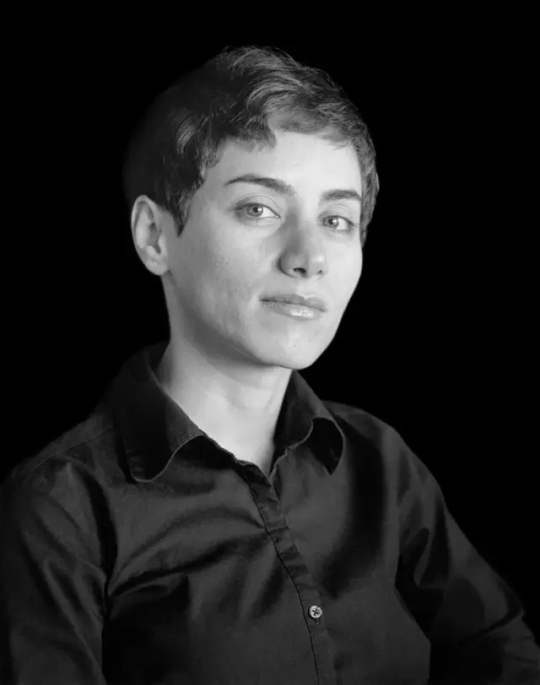
8 notes
·
View notes
Photo
Entirely too many of these tags had no autocomplete. Note to self: fix that.
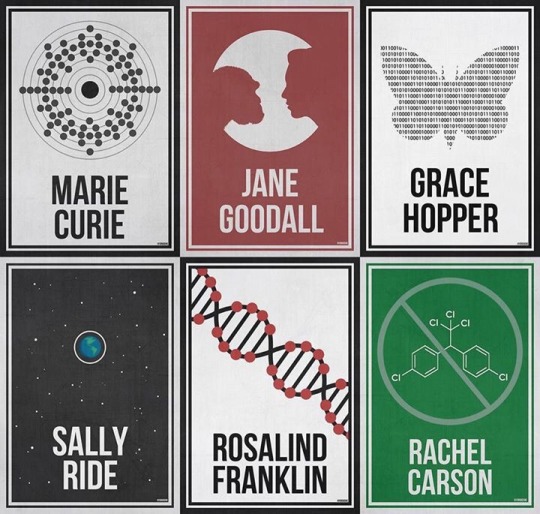
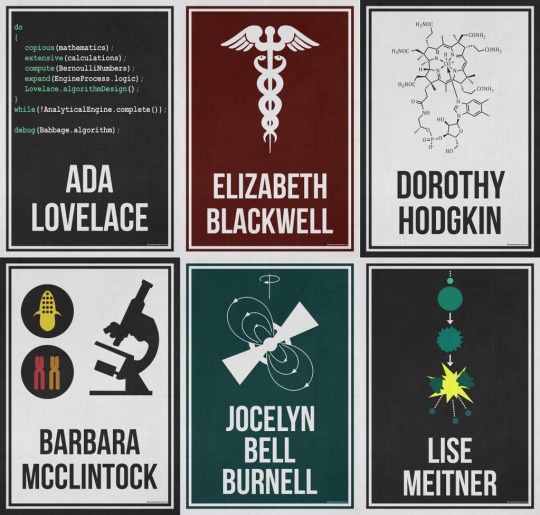
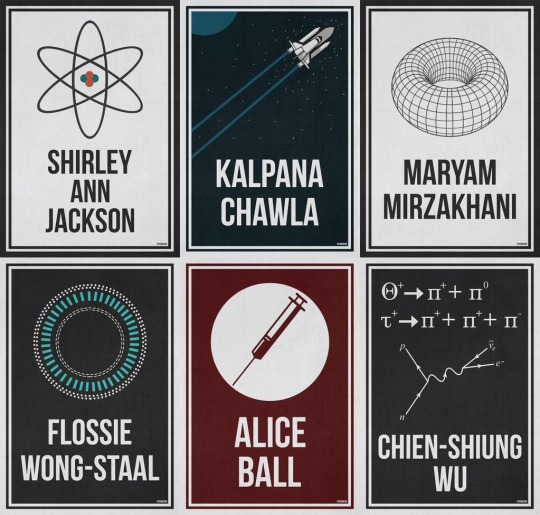
The complete ‘Women Who Changed Science - And The World" collection in honor of the 95th Women’s Equality Day.
Purchase Here!
#politics#science#marie curie#jane goodall#grace hopper#sally ride#rosalind franklin#rachel carson#ada lovelace#elizabeth blackwell#dorothy hodgkin#barbara mcclintock#jocelyn bell burnell#lise meitner#shirley ann jackson#kalpana chawla#maryam mirzakhani#flossie wong-staal#alice ball#chien-shiung wu#mathematics#computer science#ada
124K notes
·
View notes
Text
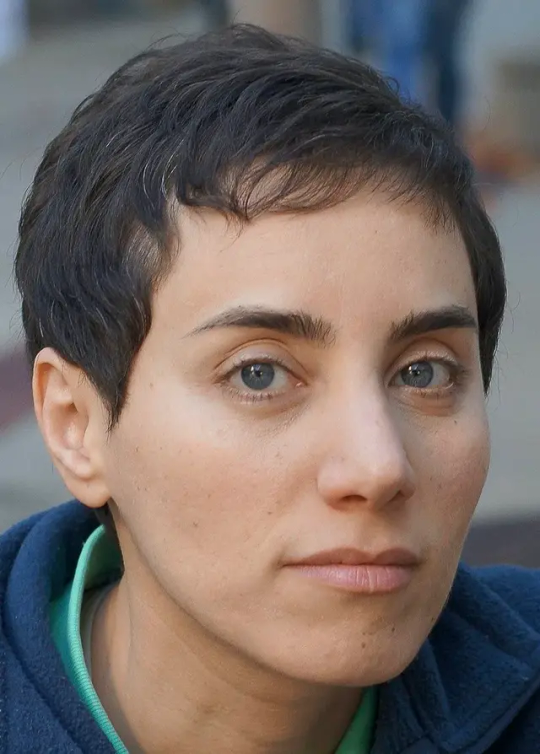
3rd May
Happy birthday Maryam
"A self-professed “slow” mathematician, Mirzakhani’s colleagues describe her as ambitious, resolute and fearless in the face of problems others would not, or could not, tackle. She denied herself the easy path, choosing instead to tackle thornier issues. Her preferred method of working on a problem was to doodle on large sheets of white paper, scribbling formulas on the periphery of her drawings. Her young daughter described her mother at work as “painting.” (Stanford News)
0 notes
Text
The phrase "two Bacons away from a bunch of raging transphobes" keeps cropping up in my discussions of my current main fandom which is both hilarious and concerning but seeing as I am safely not two Bacons away from raging transphobes, I feel like I can make this funny comment.
1 note
·
View note
Text











Happy International Women in Math Day ! 12/05
Today, we remember Maryam Mirzakhani and the impact she had (and continues to have) on women in math.
SEE MORE at: 11 Famous Women Mathematicians and Their Incredible Contributions! by Anthony Persico
66 notes
·
View notes
Quote
The beauty of mathematics only shows itself to more patient followers.
Maryam Mirzakhani
#Maryam Mirzakhani#quotelr#Beauty# Mathematics# follower# following# patient# show#quotes#literature#life quotes#author quotes#prose#lit#spilled ink#writers on tumblr#writing inspiration#poets on tumblr
15 notes
·
View notes
Text
•⭐️Women in Math(s)⭐️•
🌿Classical age🌿
Pandrosion
Hypatia
🍄18th Century🍄
Maria Agnesi
Émilie du Châtelet's
Wang Zhenyi
🌻19th Century🌻
Sophie Germain
Sarah Woodhead
Sofia Kovalevskaya
Charlotte Angas Scott
Winifred Edgerton Merrill
Sofia Kovalevskaya
Philippa Fawcett
Cornelia Fabri
🪐20th Century🪐
Louise Petrén-Overton
Mildred Sanderson
Emmy Noether
Anna Pell-Wheeler
Cecilia Kreiger
Mary Cartwright
Euphemia Haynes
Helen Walker
Gertrude Mary Cox
Gladys West
Lucy Joan Slater
Mina Rees
Grace Alele-Williams
Elizabeth McHarg
Mary L. Boas
Mary Ellen Rudin
Jean Taylor
Joan Birman
Julia Robinson
Stella Cunliffe
Marjorie Rice
Dorothy Lewis Bernstein
Joséphine Guidy Wandja
Cathleen Morawetz
Doris Schattschneider
Louise Doris Adams
Rebecca Walo Omana
Eileen Poiani
Cheryl Praeger
Gloria Gilmer
MargaretWright
Leah Edelstein-Keshet
Ina Kersten
Joan Birman
Katherine Heinrich
Tatyana afanasyeva
loana Dumitriu
Beatrice Aichson
💫21st Century💫
Melanie Wood
Susan Howson
Melanie Wood
Alison Miller
Nicole Tomczak-Jaegermann
Stefanie Petermichl
Olga Gil Medrano
Ingrid Daubechies
Daina Taimina
Maryam Mirzakhani
Claire Voisin
Nouzha El Yacoubi
Karen Uhlenbeck
Marissa Kawehi Loving
Maryna Viazovska
Ingrid Daubechies
Karen Aardal
Hanan Mohamed Abdelrahman
Amandine Aftalion
Ilka Agricola
Nkechi Agwu
Dorit Aharonov
Noreen sher Akbar
146 notes
·
View notes
Quote
The beauty of mathematics only shows itself to more patient followers.
Maryam Mirzakhani
#Maryam Mirzakhani#thepersonalwords#Beauty#quotes#literature#life quotes#author quotes#prose#lit#spilled ink#writers on tumblr#writing inspiration#poets on tumblr
11 notes
·
View notes
Text
Beginning in seventh-century Mecca and Medina, A History of Islam in 21 Women takes us around the globe, through eleventh-century Yemen and Khorasan, and into sixteenth-century Spain, Istanbul and India. From there to nineteenth-century Persia and the African savannah, to twentieth-century Russia, Turkey, Egypt and Iraq, before reaching present day London. From the first believer, Khadija, and the other women who witnessed the formative years of Islam, to award-winning mathematician Maryam Mirzakhani in the twenty-first century, Hossein Kamaly celebrates the lives and groundbreaking achievements of these extraordinary women in the history of Islam.
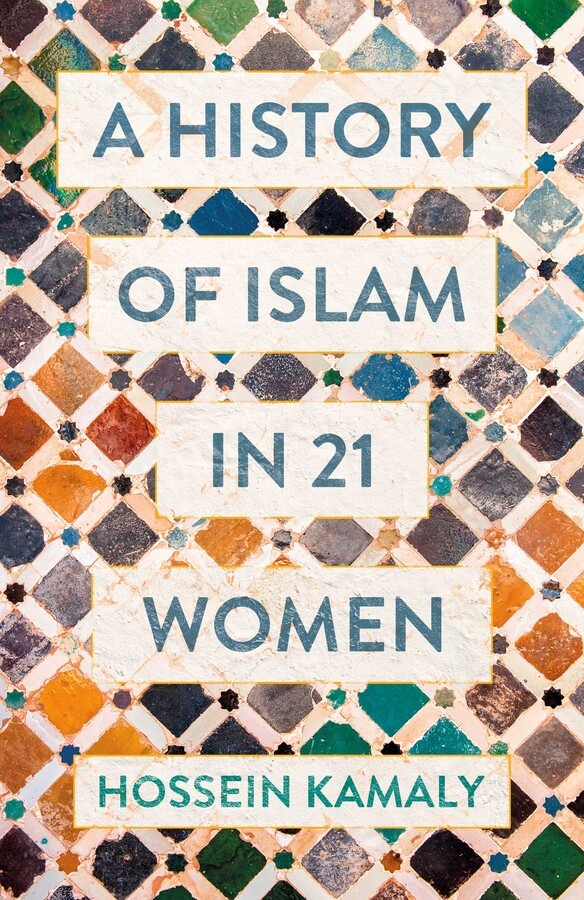

#book: a history of islam in 21 women#author: hossein kamaly#genre: non fiction#genre: feminism#genre: history#year: 2010s
11 notes
·
View notes
Text
I love you integration by parts I love you trig identities I love you Taylor series I love you Euler’s formula I love you Francis Su I love you Maryam Mirzakhani I love you calculus I love you logic I love you number theory I love you mathematics
2 notes
·
View notes
Text
A new record for Math Prize for Girls wins
Twelfth grader Jessica Wan three-peats, as MIT hosts the 15th competition for female middle and high school math enthusiasts.
Sandi Miller | Department of Mathematics

Florida Virtual School senior Jessica Wan was the winner of the 15th Math Prize for Girls (MP4G) annual contest for female-identifying contestants, held Oct. 6-8 at MIT.
She scored 17 out of 20 questions, which added up to make Wan the MP4G’s most successful contestant in its history; she also won the contest last year and in 2019, as an eighth grader. (MP4G paused for two years at the height of the Covid-19 pandemic.) Because Wan had won $82,000 in previous years, she was limited to only earning $18,000 this year by contest rules placing a $100,000 lifetime limit on winnings.
The 262 U.S. and Canadian middle and high school contestants took a two-and-a-half-hour exam that featured 20 multistage problems in geometry, algebra, and trigonometry. Here's an example of one of the questions:
The frame of a painting has the form of a 105” by 105” square with a 95” by 95” square removed from its center. The frame is built out of congruent isosceles trapezoids with angles measuring 45 degrees and 135 degrees. Each trapezoid has one base on the frame’s outer edge and one base on the frame’s inner edge. Each outer edge of the frame contains an odd number of trapezoid bases that alternate long, short, long, short, etc. What is the maximum possible number of trapezoids in the frame?
Hosted by the MIT Department of Mathematics and sponsored by the Advantage Testing Foundation and global trading firm Jane Street, the MP4G weekend culminated in an awards ceremony held at the Marriott in Kendall Square, Cambridge, Massachusetts. MIT electrical engineering and computer science (EECS) Professor Regina Barzilay gave the Maryam Mirzakhani keynote lecture, “Uncovering Mysteries of Life Sciences with Machine Learning.” The event was emceed by MP4G alumna In Young Cho, a quantitative trader from Jane Street who placed third in 2010, and featured a performance by the MIT Logarhythms.
In second place was eighth grader Selena Ge of Jonas Clarke Middle School in Lexington, Massachusetts, with a score of 14 to earn $20,000. She also was awarded a Youth Prize of $2,000 as the highest-scoring contestant in ninth grade or below.
The next four winners were junior Hannah Fox of Proof School in California, who received $10,000 with a score of 12; with scores of 11 each, $4,000 was awarded to sophomores Shruti Arun of Cherry Creek High School in Colorado, Catherine Xu of Iowa City West High School in Iowa, and senior Miranda Wang of Kent Place School in New Jersey. The next 12 winners received $1,000 each.
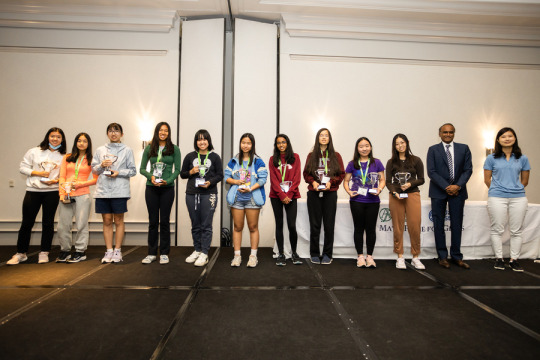
The top 41 students are invited to take the 2023 Math Prize for Girls Olympiad at their schools. Canada/USA Mathcamp also provides $250 merit scholarships to the top 35 students who enroll in its summer program.
Keep reading.
Make sure to follow us on Tumblr!
4 notes
·
View notes